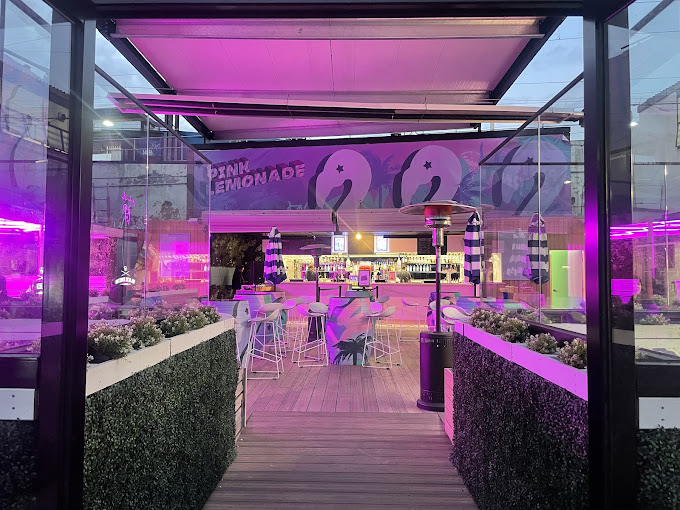In today’s rapidly evolving Australian construction industry the advent of custom steel fabrication has marked a transformative shift, meeting the unique needs of projects across diverse environments, from the urban expanses of Sydney to the rugged Outback. This sector continuously embraces newer technologies, materials, and methods to boost operational efficiencies and accommodate the growing complexities of contemporary infrastructure ventures. Among the plethora of innovations, custom steel fabrication has distinguished itself by offering unmatched resilience, adaptability, and precision across various projects, from towering urban structures in Melbourne and Sydney to critical infrastructure like bridge frameworks spanning Australian waterways.
What is Custom Steel Fabrication?
Custom steel fabrication is a process dedicated to the bespoke production of steel components, crafted to align perfectly with the specific demands of each construction initiative. This comprehensive method includes the shaping, cutting, and assembly of steel into intricate configurations such as trusses, beams, and columns. The adaptability inherent in custom fabrication means it can support a wide range of architectural styles, project scales, and functional needs, proving critical in modern construction scenarios.
Advantages of Custom Steel Fabrication
The approach to custom steel fabrication is highly personalised; every steel segment is precisely cut, moulded, and compiled based on exact project stipulations. Such bespoke crafting ensures all parts seamlessly conform to the intended design, minimising the necessity for adjustments during installation, thus expediting overall project timelines and enhancing workflow efficiency.
Precision and QualityAdhering to Australian Standards, specifically AS/NZS 1554 for structural steel welding, ensures that every custom-fabricated component meets local industry quality and safety benchmarks. Through custom fabrication, the precision in engineering and the quality of output are significantly heightened. Utilising state-of-the-art technology such as precision laser technology and CNC machinery, every component is crafted to stringent specifications, ensuring an optimal fit and premium finish, thereby upholding rigors quality standards across the construction lifecycle.
Enhanced Durability and StrengthRenowned for its formidable strength and resilience, steel is a preferred material for substantial construction projects. Custom steel fabrication further augments these characteristics through sophisticated manufacturing techniques that bolster structural integrity. This fortification ensures that every connection and beam reliably withstand harsh environmental elements, substantial loads, and extended wear, thus contributing to the safety and longevity of the structure.
Cost-Effectiveness and EfficiencyA notable benefit of custom steel fabrication for Australian projects lies in its economic efficiency, particularly given the geographical challenges and variable climate across states. By preparing materials to precise dimensions in advance, construction entities can diminish waste and curtail expenses linked to surplus materials. The meticulous nature of custom fabrication facilitates smoother assembly at the construction site, reducing both labor involvement and project duration. This streamlining leads to swifter project completion, allowing facilities to be operational sooner and providing financial gains to both constructors and stakeholders.
Design FlexibilityCustom steel fabrication empowers architects and engineers to push the boundaries of conventional design without the constraints of standard steel pieces. This process supports the creation of distinctive shapes, dimensions, and finishes that align with Australia’s reputation for architectural innovation, from sustainable high-rises to unique residential builds, broadening the aesthetic possibilities of buildings and enabling a higher degree of design innovation that meets diverse project visions.
Supporting SustainabilitySupporting environmental sustainability is another core aspect of custom steel fabrication. Steel ranks as one of the most recyclable materials globally, and its use in construction significantly reduces waste. By refining the fabrication process to decrease scrap and leveraging technology for more efficient layout planning, the construction industry can substantially lessen its ecological footprint. In alignment with Australia’s commitment to sustainability and net-zero carbon targets, custom steel fabrication reduces waste through precise material use and supports green building certifications.

The Custom Steel Fabrication Process
This process typically unfolds through several essential stages:
- Consultation and Design: Initial discussions occur among architects, engineers, and fabricators to agree on precise project requirements and aesthetic desires, shaping detailed blueprints and technical guidelines.
- Material Selection: The optimal steel type and grade are selected to suit project-specific needs concerning durability, resistance to corrosion, and budgetary constraints.
- Fabrication: Skilled fabricators operate advanced tools to cut, shape, and construct steel parts, involving techniques like welding and machining to acquire the desired finish.
- Quality Control: Rigors quality checks are conducted throughout the fabrication phase to ensure each component adheres to the set standards and specifications.
- Delivery and Installation: Upon completion, the steel elements are transported to the site for assembly by proficient installers, ensuring the build proceeds smoothly and in alignment with project plans.
Applications of Custom Steel Fabrication in Construction
Utilised across a spectrum of construction contexts, custom steel fabrication is integral to:
- Commercial Buildings: It forms the backbone of structures ranging from office buildings to shopping centres.
- Industrial Facilities: It accommodates specific needs within factories and storage complexes.
- Bridges and Infrastructure: Its robustness is crucial for long-lasting civic construction.
- Residential Projects: It enables contemporary home designs with open layouts and extensive window spaces.
Architectural Elements: It adds both function and flair to aesthetic components like staircases and canopies.
Conclusion
Custom steel fabrication is foundational to contemporary building, delivering robust, efficient, and adaptable solutions. Its role in driving faster, more economical, and ecologically responsible construction is undeniable. At Austeel Australia Pty. Ltd., we proudly specialise in structural steel fabrication, supporting Australian projects with industry-leading expertise. By aligning with the latest local standards and sustainable practices, we ensure that each structure is both resilient and forward-looking, contributing to Australia’s legacy of architectural excellence. Our commitment to transforming architectural visions into reality with unmatched precision and quality guarantees lasting innovation and quality in construction, making every project we handle a testament to our dedication and expertise.






